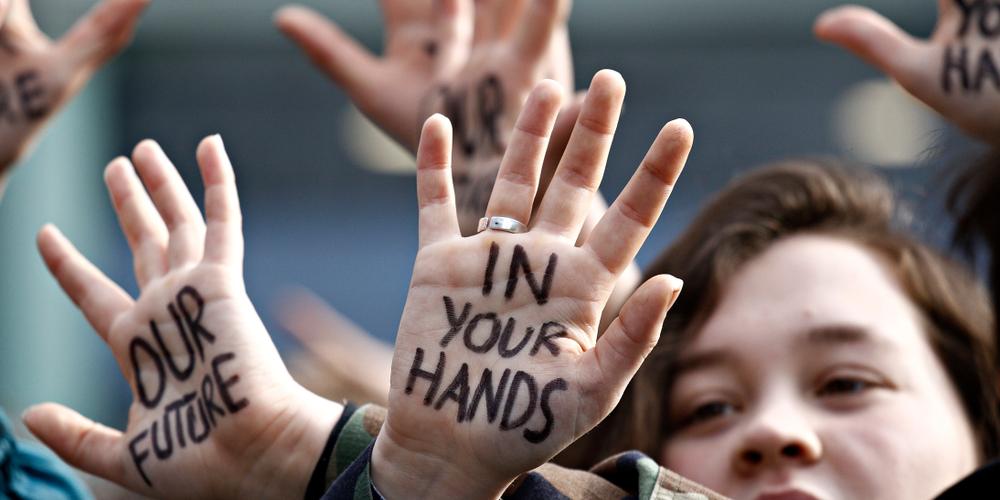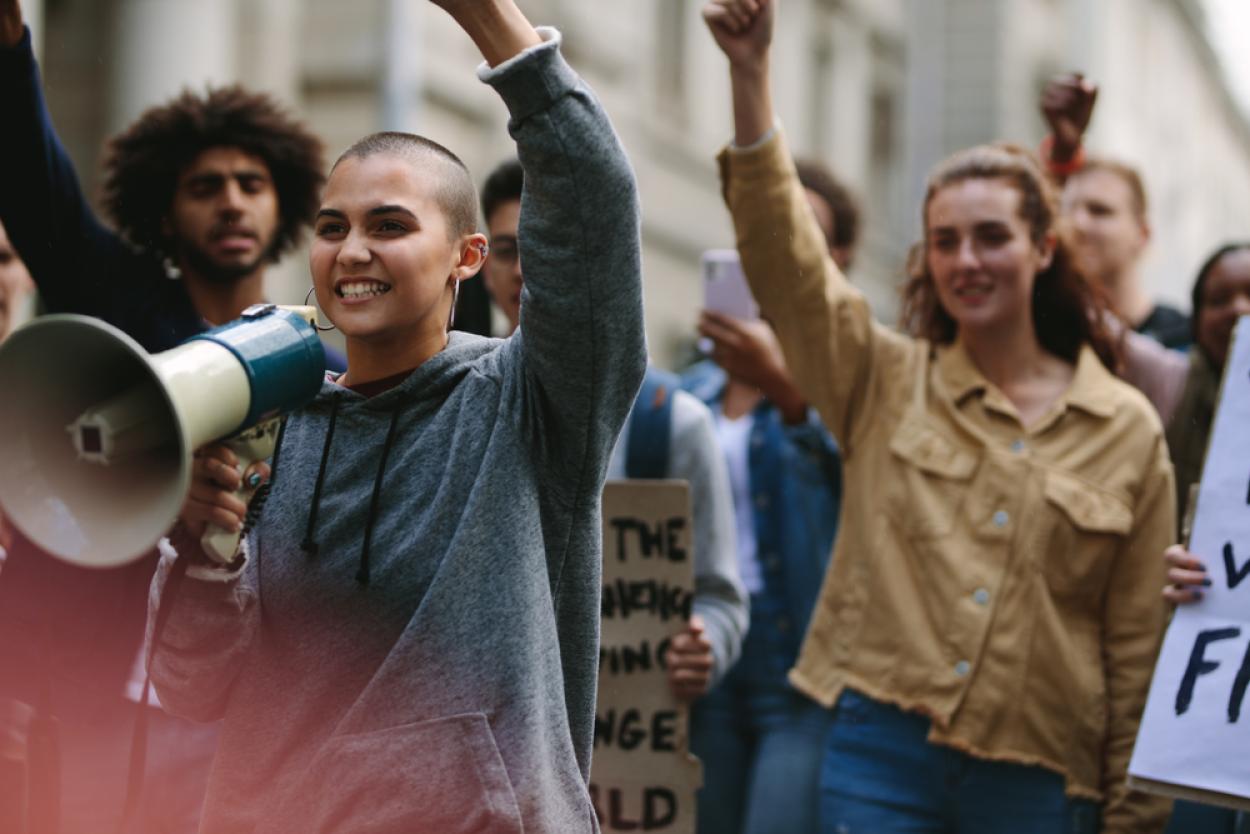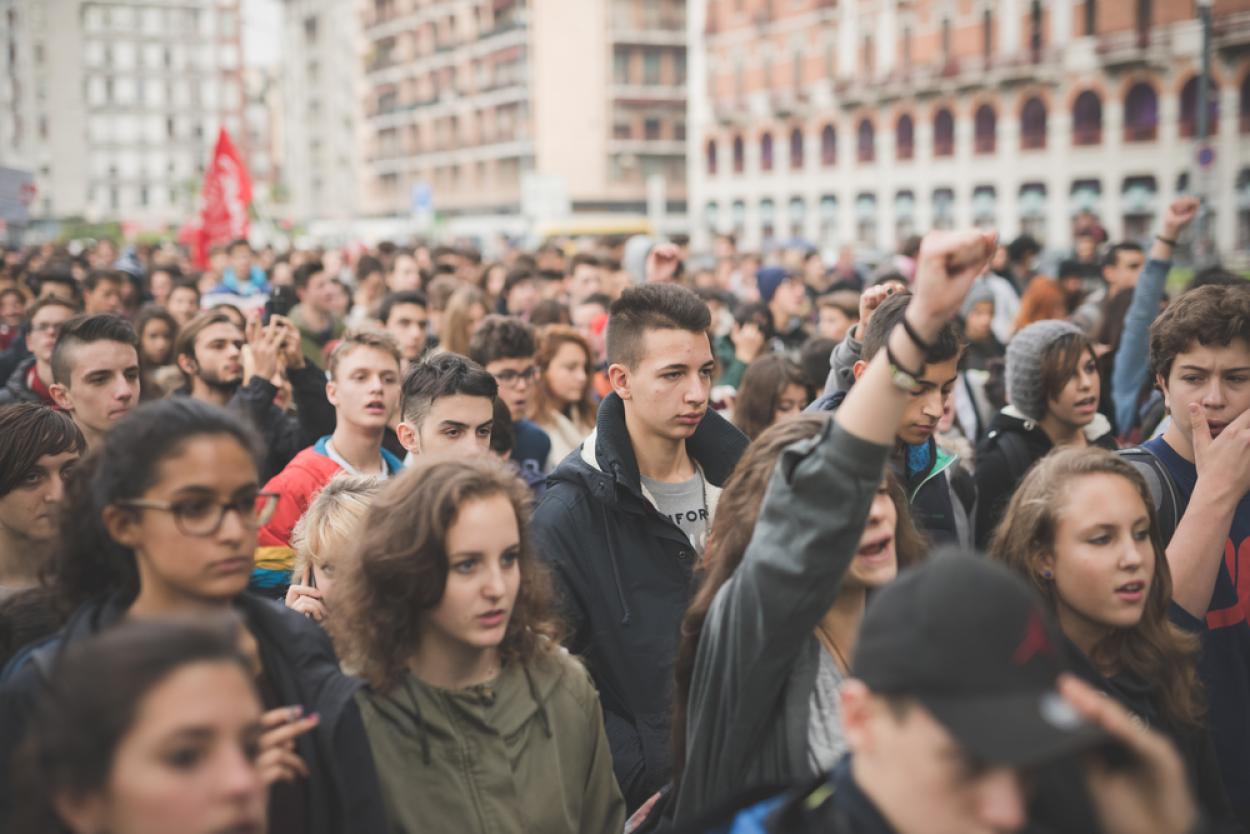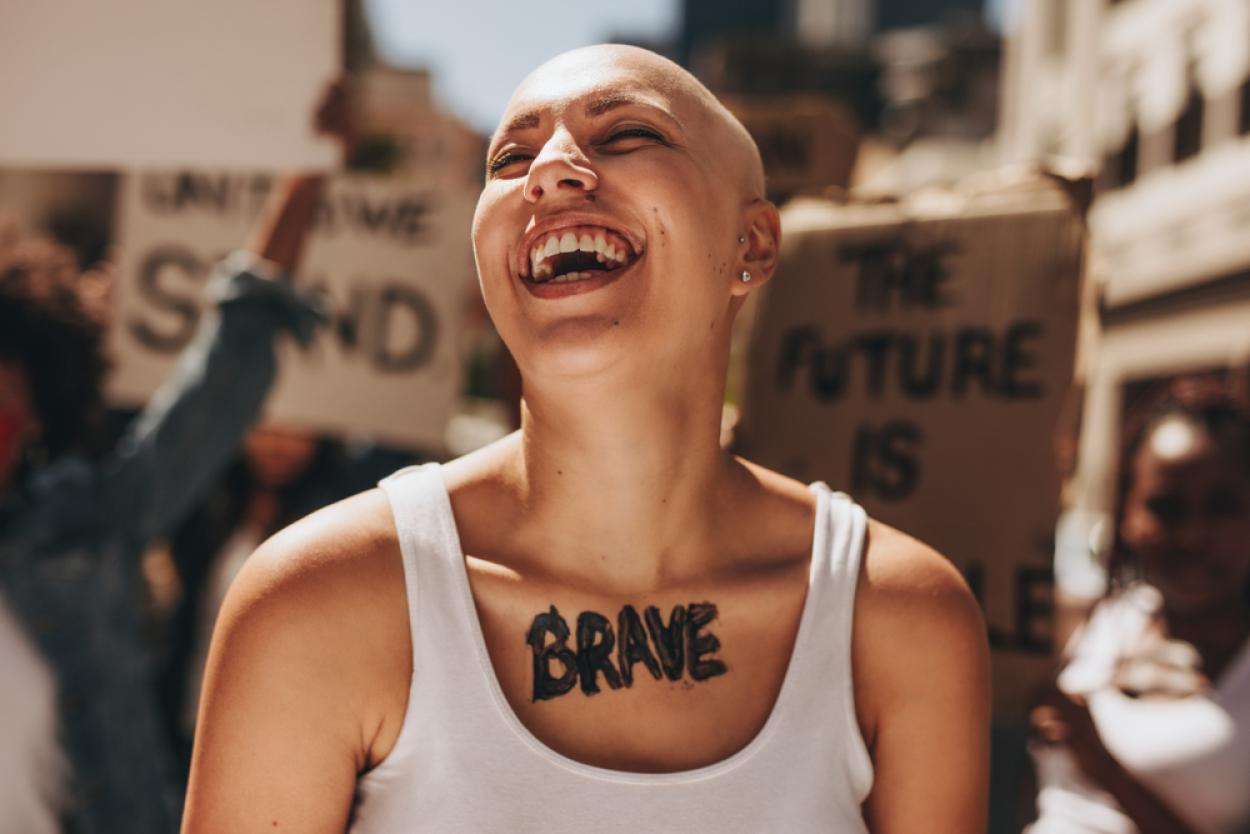
On Wednesday 31 January, two students from the VUB and ULB will engage in a conversation with Alexander De Croo. The occasion is his new book "Why the best is yet to come". In it, he radically opposes doom-and-gloom thinking, nationalism and demolition politics. But what is the state of progress thinking among our students? Are they as confident about the future as our prime minister? We gleaned responses from students.

Bob Stoops, MA History
“I find it interesting to see how challenges from the past are reflected in the present.”
“The war in Ukraine, the climate and purchasing power crises, the rise of the far right, these are major, threatening challenges. But I also see, and certainly among my contemporaries, the will to do something about it. The activism of students protesting for better climate policy fills me with hope. So does seeing civil society organisations helping the weakest in our society, such as social welfare offices or food banks. So I look to the future with cautious optimism.
My studies in history help me with this. I find it interesting to see how challenges from the past are reflected in the present. And to look at history to see how we can address today’s challenges.
What needs to be addressed now: socio-economic inequalities. They mainly affect the weakest in our society. I strongly believe in the upward social mobility offered by the VUB and other higher education institutions. Also, the growing dogmatisation of social debate makes it increasingly difficult for free speech to find its way. That’s a serious threat to free inquiry.
I think it’s important that, as a citizen in a free society, you don’t just ignore the challenges but take action. As a student representative, I defend students’ interests in order to work within the VUB for the change I want for the future. Everyone can contribute by voting, by joining civil society organisations, and just by being there for the people you love.”
Luna Bauwens, MA Physiotherapy
“Because of how things are in the world now, I look rather pessimistically at the future. But hey, we are the youth, so we can’t help but remain optimistic. I also have hope, because I know a lot of young people who are ready to change the world. One issue that urgently needs to be addressed is the situation in Palestine. And the climate. How can I help from my side? Not charging too much money for a physio session!”
Aleix Castells, MA Journalism
“I have the impression that politicians don’t really want to address these problems.”
“My home country, Spain, has big problems in terms of employment. Globally, the situation does not look much better. If you look at climate change or migration issues, it’s difficult to remain very optimistic. I have the impression that politicians don’t really want to tackle those problems, but are mainly concerned with economic issues. Using my training in journalism, I do think I can make a difference. As a journalist, you can highlight important topics, explain to people without bias and look at things from different perspectives.”
Firas Bayoudhi, MA Computer Science
“I hope we can use technology to improve the world.”
“I don’t really see a bright future. The climate issue worries me, as does the explosion of the world’s population. I hope we can use technology to improve the world. In the medical field, you can already see that happening. By deploying AI, medicine is making great leaps forward. Tumours, for example, can be detected much faster. I chose my degree because computer science is the future. Technology will save the world.”
Ines Viala De Meuter, MaNaMa International and European Law
“How can people in Gaza and Ukraine rebuild their lives in the long term?”
“People are tired and angry and therefore increasingly resort to extreme ideas and methods. Whether it’s a world conflict, elections or how you treat your neighbour.... There is still very little tolerance. Hopefully there will be a new dynamic that can adjust that.
The conflicts in the world keep me awake at night. How can people in Gaza and Ukraine rebuild their lives in the long term? And will the countries that have committed war crimes or other inhuman acts be held accountable? I also think the refugee situation is a problem that needs to be addressed now. I’m from Brussels and believe that people should not end up on the streets. We need to address poverty in Belgium. People in poverty should also have prospects and more opportunities.
There are lots of lawyers and people from the political sciences on my course. Many of them will end up in decision-making positions. But does this mean you actually contribute to society? I sometimes have a hard time with that: that you’re not always sure whether your work really has impact and leads to positive things.”


Chloë Mbarushimana, EU Policy Making
“I take a rather pessimistic view of the future. Because of conflicts and wars around the world, where the EU could intervene but chooses not to. Because of global warming. Because of the rising prices on the housing market, leaving single young people unable to find affordable housing without financial help from their parents. Because of the strong rise of the political right in Europe and the racism that comes with it. I don’t think the rosy future I hope to see, in which empathy is central, will happen. I fear that we are moving more and more into a capitalist and self-centred society that does not care who is harmed in the process or is lost along the way. Of course, I see people daring to denounce injustice and even risking their careers in the process. That still gives me a little hope.”
Daan Vandenberghe, BA Geography
“Most of the solutions are already there, but they need to be implemented as soon as possible now.”
“Even if we stop emitting greenhouse gases right now, the Earth will continue to warm all our lives. This is due to an inertia in the Earth-atmosphere system. But I believe we can join forces as young people and as humanity, across national borders and cultural differences, to make our planet more liveable, inclusive and equitable. I am ‘cautiously’ optimistic because the future will not get better by itself. We cannot continue to watch as wars destroy human lives, as fossil fuels continue to fuel the economy, as injustice is expressed in numerous ways.
Climate change is one of the greatest challenges facing humanity today. And fortunately, the solution is in our hands, as we ourselves are responsible for anthropogenic climate change.
I chose geography quite deliberately, because it’s the discipline where you learn about the relationship between humans and the planet. Thanks to an interdisciplinary approach, you use the tools of both exact and social sciences to learn about climate change and social, political and economic processes.
Most of the solutions are already there, but they now need to be implemented as soon as possible. Think of renewable energy, more sustainable means of transport, meat substitutes; I try to push for these in my role as a UN Youth Council delegate as well. As a student, I also work on the VUB’s GreenTeam, where we want to support as many bottom-up initiatives as possible to make the campus more sustainable together. As an educational and research institution, the VUB has an important pioneering role to play.
One of my dreams is to start a social enterprise, where the primary goal is to improve the world instead of making a profit. As a geographer, I also hope to provide new knowledge and perspectives on inequality, geopolitics, climate change and so on. Finally, I would like to call on all students and employees of the VUB not only to expand their academic knowledge, but also to act according to that knowledge. Let’s work together for a less unequal world and a better future.”
Want to attend the student debate with Alexander De Croo?
There are still space! On Wednesday 31 January, Alexander De Croo will give his views on the challenges facing our society and young people in particular. Two students from the VUB and ULB will put him to the test. Register here for a fascinating evening.